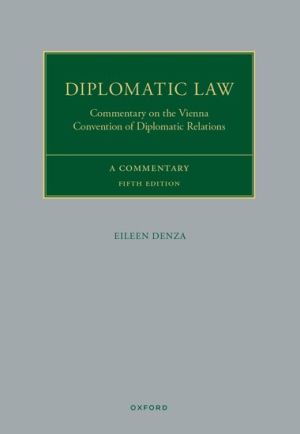
For nearly 50 years, Eileen Denza's Diplomatic Law has been the go-to reference on the Vienna Convention on Diplomatic Relations, used by ministries of foreign affairs and cited by courts worldwide.
The 1961 Vienna Convention codifies the rules for exchange of embassies and the conduct of diplomatic missions worldwide, with the rules giving special protection to ambassadors among the oldest established in international law and respected almost everywhere. Understanding the Convention as a living instrument requires knowledge of its background in customary international law, the negotiating history clarifying its terms, and the subsequent practice of states and court decisions resolving ambiguities.
Now in its fifth edition, Diplomatic Law continues to be an essential guide to changing methods of modern diplomacy, providing an article-by-article commentary and placing each provision in context. The book highlights important new trends in the application of the Convention and provides comprehensive historical context and commentary on its application by the UK, the US, and other States. It explores the interaction between State and diplomatic immunity, examines methods of establishing and conducting diplomatic relations under conditions of physical danger, and looks at increased evidence of disregard for the rules of secrecy in diplomatic communications.
The fifth edition discusses recent cases and incidents in diplomatic law up to 2025, including Julian Assange's prolonged asylum in the Ecuadorian Embassy in London and the case of Basfar v Wong, where a domestic worker was kept by a diplomatic staff member in conditions amounting to modern slavery. Illuminating the evolving challenges and practices of modern diplomacy, this book is an essential reference for international lawyers, policymakers, and diplomatic staff.